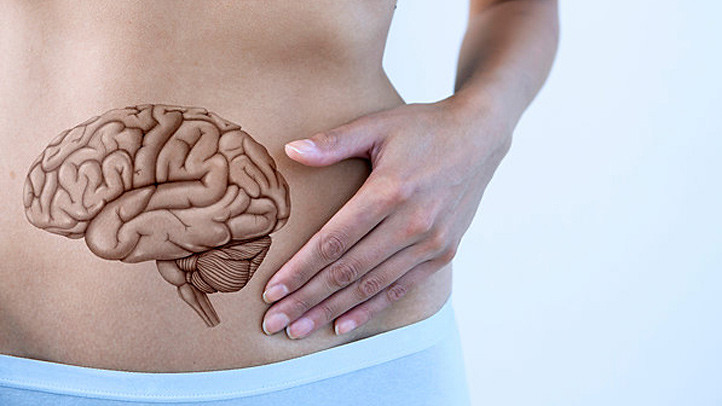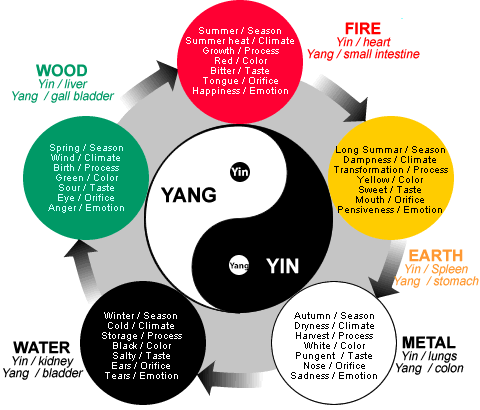SHARES

“I am so frustrated right now, I can bite hard into a chocolate bagel!” Do you often find yourself in the mood for certain food? Is it really true that we are what we eat?
Our Second Brain – The Gut
The human gut, extending all the way from the mouth to the anus, has nerve endings that link directly to our brain. In fact, this network of nerve cells is so dense and complex that scientists often describe it as our “second brain”. On top of that, our gut is full of bacteria that live in harmony with us. The truth is – we need each other for survival, it is a symbiotic relationship. For example, our body provides shelter and food for them. In return, these bacteria help us digest our food and even produce important vitamins that our body cannot produce. Also, they help in fighting against other hostile bacteria that try to infect our body!
More interestingly, our gut bacteria can talk to our brain and body! They can produce or aid in the production of small messenger proteins (neurotransmitter and hormone) that convey signals directly to our brain and different organs in our body. Also, researchers find out that by changing the bacteria population in mice guts, their food choice also changes! This could possibly explain why we crave for mummy’s cooking and hometown food.
The TCM Concept
In Traditional Chinese Medicine (TCM) practice, the core principle is that the mind, the body and the living environment are closely related and constantly affecting one another. Practitioners embrace the concept of “Oneness” (不二, bu er). In this context, we are what we eat. The reverse is also true that temperament and personality will affect our food choice. Both are different sides of the same coin.
Moreover, most TCM treatments emphasise strongly that everything in the universe will strive to achieve a balance (阴阳自合,yin yang zi he; literally means “opposing forces will balance out themselves eventually”). Hence, the body and mind tend to act in a way to cure itself by balancing out the odds. For instance, if the body have too much heat and dampness (eg. acne, bad breath, irritable, heat intolerance) from over eating of heaty and oily food, the body will be attracted to cold and dryness (eg. consuming watermelon, green tea, etc).
“For When Does a Berry Break Upon The Tongue As Sweetly As One Longs to Taste It? – Marilynne Robinson”
Balancing what we eat
Often times, we find ourselves craving for certain food, or rather, for how these food make us feel. As such, a warm cup of coffee in the morning, rich tender chocolate for love, and if nothing happens, you drink to make something happen. Indeed, TCM practitioners often explore your cravings to find out any imbalance in your body.
In this sense, our feelings and bodily health are closely related. When there is an imbalance, our body will crave for certain food to help restore the balance. As an example, when you have too much desire or elated mood (fire), eating bitter food such as bitter gourd, lotus seed (莲子, lian zi), and Broadleaf Holly tea (苦丁茶, ku ding cha) can help calm your energy. If you’re feeling low in spirit (fire), consider taking some red/purple food (eg. apple, sweet potato, red dates) to boost your mood.
In short, we are going to experience changes in our emotions (happy, calm, anxious, sad, afraid, angry) from time to time. The rule of thumb is to consume a wide variety of food different in taste (bitter, sweet, spicy/pungent, salty, sour) and fruits/vegetables different in colors (red, purple, yellow, white, black, green). Talk to a Traditional Chinese Medicine practitioner if you’re having persistent symptoms.
Desserts Spelled Backward is Stressed
Eating food high in calories such as fried and sugary food, or sweetened beverages can give you an almost instant feeling of satisfaction. This is because oily and meaty food are harder to digest and stay longer in your stomach. Your gut will then produce hormones telling your brain that you’re full! This satiated feeling can be satisfying.
However, you may soon fall into a food coma with clouded mind and lazy body. This is because high sugar level in your blood will stimulate your brain to produce too much serotonin hormone making you sleepy and drowsy. Your gut hormones will also pull blood towards the gut while it works hard to digest your food. This leaves less blood flowing to your brain and other parts of your body. For these reasons, eat in moderation and choose less oily and sugary food. This will give you a satiated but not bloated feeling, with an ensuing calmness and relaxing vibe.
Caution! Craving for high calorie food can be a sign that your body is in chronic stress (high cortisol hormone level). Take time to learn about your stress factors and manage them. Also, the craving may be due to a lack of feel good hormone, or “emotional hunger”. This can easily lead to over eating if you’re trying to fill a void in your life with food. In the long run, the level of feel good hormone in your brain will decrease further because of fatty and sugary diet.
Conclusion
What we eat will affect how we feel. The opposite is also true. Be mindful of what you put into your mouth because they will shape your health and well-being!
Find a Traditional Chinese Medicine (TCM) Practitioner and Dietician in Malaysia, on GetDoc
Find a Traditional Chinese Medicine (TCM) Practitioner and Dietician in Singapore, on GetDoc
References
- TS Sathyanarayana R, KS Jagannatha R. Understanding nutrition, depression and mental illness. Indian J Psychiatry. 2008 Apr-Jun;50(2):77-82.
- ReShel A. The relationship between food and emotions [Internet]. UPLIFT. 2020. (Available from: https://upliftconnect.com/relationship-between-food-and-emotions/; last updated on 2017 Dec 7; last accessed on 2020 Jan 13)
by Chang Xian
View all articles by Chang Xian.








